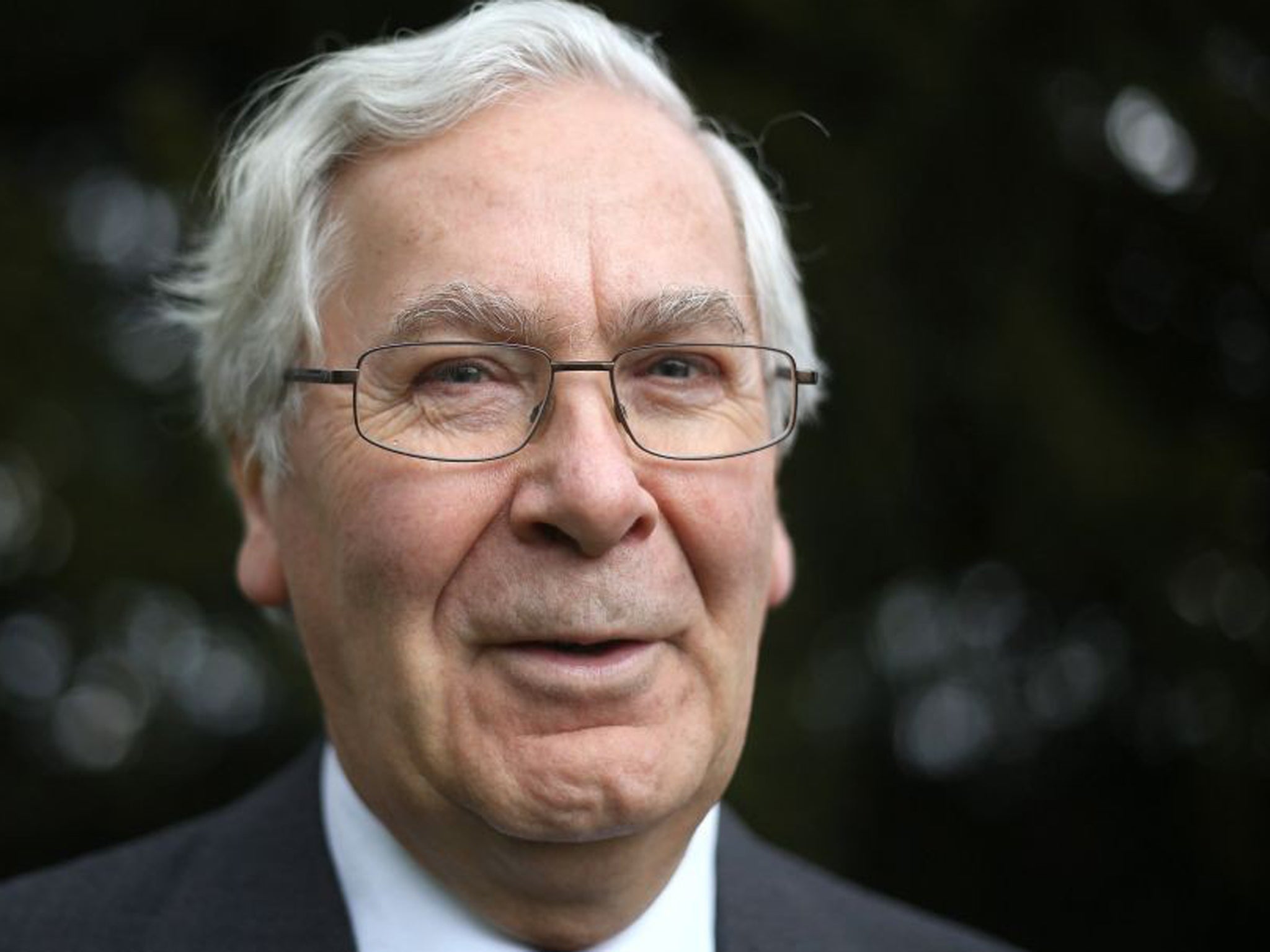Lord King might be a Jeremiah. But sometimes the Jeremiahs are right
Outlook

Lord King says a future financial crisis is “inevitable” without fundamental reform of the financial system. The former governor of the Bank of England makes the statement in his forthcoming book, currently being serialised by The Daily Telegraph.
Is he indulging in hyperbole and alarmism to sell some extra copies, or does he make a case that demands our attention?
Let’s consider the latest set of banking results, which didn’t exactly speak of a sector in rude health.
HSBC started the ball rolling, missing analysts’ forecasts with its fourth-quarter loss and producing a long list of regulatory woes that may bite hard in the future. Standard Chartered, which operates in many of the same regions, followed a day later. Its results looked even worse.
Lloyds then bucked the trend. Its numbers were more or less up to snuff if you set to one side the £2.1bn thrown at the PPI debacle. There was even a (small) special dividend to damp down any potential fuss about boss Antonio Horta-Osorio’s pay package.
But normal service was swiftly resumed when Royal Bank of Scotland unveiled its eighth annual loss in a row. And then Barclays limped in. Its flight out of Africa (see item in yesterday’s column) had been widely trailed, but it also slashed its dividend and announced yet more restructuring – and its shares languished in the bargain bucket.
And the economic conditions in which these banks are operating could become far more challenging than they are today. What happens then? What happens if America’s watchdogs bring the hammer down again (I’m looking at you, HSBC)? Or if credit conditions deteriorate here? Or if the global or UK economies hit any one of a number of icebergs?
The banks’ bosses will tell you that they are cutting costs and getting things into shape. They will tell you that they passed the Bank of England’s last two annual stress tests. Move along – nothing to see here.
Except that they didn’t all pass. In both years one or other of the banks hurriedly revised capital plans to make sure they could cope – Lloyds and RBS (and Co-op) in year one, Standard Chartered last year.
With the spectre of a “light touch” creeping back into regulation and the Government offering fealty to the sector’s heavyweights, how safe do you feel?
People like Lord King are sometimes dismissed as Jeremiahs. Unfortunately it might take another crisis for that to change. If he’s right, we might not have to wait long.
LSE and Deutsche Börse are the best sideshow in town
Once again it looks like the London Stock Exchange could become the centre of a tug of love. While Deutsche Börse continues to whisper sweet nothings, New York Stock Exchange owner Intercontinental Exchange has confirmed that it is waiting in the wings. It is unlikely to be alone.
Some might at this point ask where the former chief LSE Dame Clara Furse is, now that London needs her again. Dame Clara fought off a series of bids, including one from Deutsche and two from Nasdaq, but times have changed and exchanges aren’t quite the treasured national assets that they once were.
The actual exchange for which the LSE is named represents a relatively small part of the group’s business, which now sprawls across trade clearing, information services and software, among other things.
Such diversification was necessary; traditional exchanges have been losing market share to alternative trading venues such as the so-called “dark pools”.
But exchanges can still stir emotions, and the courting couple will make a big song and dance about their European capital markets “solution”. Meanwhile the Americans will talk about how they plan to make London their European hub. Others will dust down similar sales pitches, while their bankers drool at the fees.
With the EU referendum looming, the issue of the LSE’s future is something of a sideshow. But it has the potential to be an entertaining one all the same.
Direct Line wins the battle, Moneysupermarket the war
The market loved Moneysupermarket’s results, but it loved Direct Line’s more. Perhaps this is understandable, given that the insurer jumped ahead of expectations on profits, paid a special dividend and had analysts betting on another.
Nonetheless, the impact of Moneysupermarket on Direct Line’s market should not be underestimated. The price-comparison website has excelled with some of the most irritating ads that it is possible to create. Which is half the point. Getting your name at the front of people’s minds is the key achievement for players in this competitive sector and Moneysupermarket is doing that, having largely won the first part of the battle, which is persuading people to switch in the first place.
The message seems to be getting through that a few minutes spent on the internet can pay dividends, particularly at a time when premiums are increasing – stoked by the Government increasing insurance premium tax.
Direct Line shuns the sector, and even after losing distribution deals with Sainsbury’s and Nationwide, it wouldn’t appear to have any reason to change its stance.
Still, switching is starting to come of age, and if premiums continue to rise, the Moneysupermarkets of this world will be in the driving seat.
Join our commenting forum
Join thought-provoking conversations, follow other Independent readers and see their replies
Comments